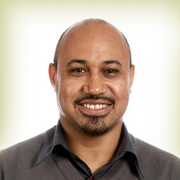Sequelae of the apartheid among South African emigrants
 |
|---|
| Christopher Sonn |
After 20 years since the end of the apartheid, patterns of race and class continue to shape the subjectivities of South Africans, including those who have left the country during the regime. According to psychologist Christopher Sonn, a professor at the University of Victoria, Australia, these emigrants are marked by specific psychosocial processes of identity construction and negotiation of the sense of inclusion, which involve both the memories of the past oppression and the relationships with their homeland.
Sonn will speak on the topic at the conference “The Apartheid Archive: Racism, Memory and Belonging among South Africans in Australia”, organized by IEA-USP’s Intercultural Dialogues Research Group. The event will be held on September 9, at 7 pm, at USP’s Institute of Chemistry. The psychologist will present the work of the Apartheid Archive, an international project based in South Africa which aims to examine the traumatic experiences of South Africans during the apartheid era, as well as to research the impacts of racism in the individual and collective identities of the victims.
The project focuses on life stories of ordinary people, especially on experiences linked to the daily oppression of the apartheid, as a way to access and recognize the common memory of the victims, which are usually not a part of the great narratives of the official history, more interested in striking facts and historical figures.
The exhibition will particularly address the personal stories of South Africans who have migrated to Australia. According to Sonn, the idea is to "illustrate the role that memories of their homeland play in the negotiation of belonging and identity in the ‘Australian multicultural’ context."
EXHIBITOR
Christopher is an Associate Professor at Victoria University where he teaches in areas of community, cultural and liberation psychology and qualitative research methods. His research is in the area of sense of community, social identity, immigration, and intergroup relations. A major focus of his research is on understanding non-dominant group responses to oppression, including racism. He has investigated the adaptation of different immigrant communities to Australia as well as the responses of Indigenous Australians to dominant group settings and stories. His focus is on understanding the multiple and often hidden resources and structures groups develop to help protect valued cultural identities and to resist oppression and promote liberation. Christopher continues to work with the Community Arts Network Western Australia exploring how community arts can be utilised in community capacity building. He is also a lead researcher on the international Apartheid Archive Project based in South Africa.
The event will be broadcast live on the web.
